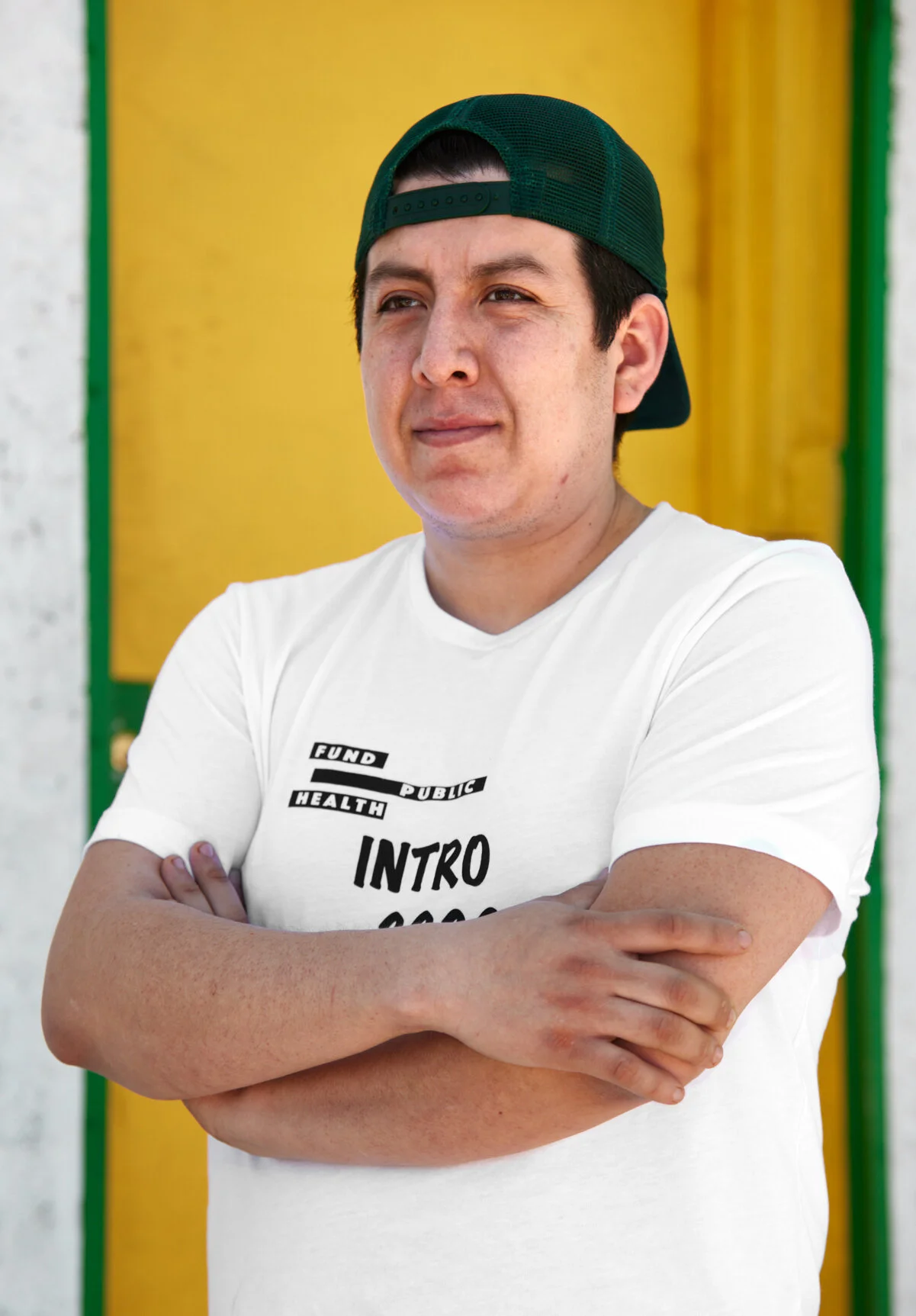Israel Veliz, City Tamale
Interviewed by Jessie Cacciola / photo: Mathew Andreini
April 2021
We can personally attest to the ability of a tamale to change the course of your day, especially when it’s handed to you by someone like Israel — who despite working in this industry for over a decade, hasn’t lost sight of why he became an owner. From his spot on Oak Point Avenue in Hunts Point, customers pick up fresh juices, tacos, and tamale platters on their way to work or school. Hunts Point is the place where most of your food comes into New York before it’s delivered to restaurants and grocers. When the pandemic hit, that workforce was reduced by at least half.
We spoke with Israel about how he kept City Tamale open, and his commitment to providing for his employees.
How was the last year for you?
We’re working today, so we’re happy about that. The restaurant business is a tough business. If anybody manages in the restaurant world, at the end of the day they get to keep 5 to 10 percent of their revenue. That’s the best case scenario. In most cases, we hardly break even. I do agree that there needs to be certain regulations for the city to protect customers. There’s just so many fines, especially with the health department.
How is your relationship with the DOH?
I think everyone who runs a restaurant can agree with me. Everyone is afraid of the health department — the way they show up, the way they approach the inspections. It’s scary. I’ve been in the food business for 15 years. I don’t think it used to be as bad as it is now, but for the past ten years [after letter grades were introduced and fines increased], it’s gotten worse. When an inspector shows up, it’s like people are having heart attacks. Instead of learning from the inspectors on how to better take care of the food and our customers, we get fined. So maybe the 5 percent that we were going to take home, we can’t, because it all goes to fines.
How would you change this relationship?
I think this is one of the reasons I took a leap of faith into running a business. I saw so many injustices, especially for the immigrant community. I felt like, you know what, I think I can help a little bit if I run my own restaurant. I’ve been fighting for our rights since I started working in the food business, but you don’t really have a voice as a worker. I thought as a leader I might have a stronger voice.
Do you feel like you have a voice now?
I think change starts here with my team, my people, my food. I try to show them the ins and outs of running a business. Not just being a good employee but putting them into opportunities of growth — with my company, with other opportunities out there. Not everybody wants to be a business owner or a leader but at least I give them that opportunity to know a little bit more.
How big is your company?
Before the pandemic, we had about twelve employees here. Now we are down to four. Last year, on January 10 of 2020, we opened a second location in the city, at 52nd street. Then the pandemic showed up and we were forced to close in March. So we were only open there for two months. At that time, I had a little over 20 employees that we were providing with jobs. It was going good, but now we just need to take a step back to get to where we were.
How are you feeling about the next year?
I think any small business leader with ambition never gives up, because we fought so hard to open a business. Even with the pandemic, we don’t give up easily. We continue to work and readjust to the needs as they change. Before the pandemic, I didn’t work in the kitchen. I had a couple of cooks. But when the pandemic came, I had to step in. I had to learn to cook. Because there wasn’t a lot of money to be passed around.
How did you process what you were going to do to make it through?
Last March, the streets were empty. Even in Hunts Point, we lost over 50% of sales. So we had to improvise. There were still people out there. We just needed to sell differently. So we jumped on social media. We started selling through Instagram and Facebook. We started delivering tamales throughout the city. We’ve been hustling this whole time.
I think we had our best two weeks this April, so business is starting to come back, slowly. We are definitely starting to see more people out here. More people are returning to work. Some schools are open again. Schools play a significant role in our business. If there’s no school, a lot of businesses lose money.
Have you been visited by the DOH this year?
We haven’t had a [regular] inspection in over a year. We are expecting them any day now. They came [for COVID compliance] to check our paperwork and tools to take [employee] temperatures. They did help us. They gave us handouts on how to protect our employees and the general public but I haven’t seen them in a while, at least a few months.
__
Israel Veliz is the owner of City Tamale (1316 Oak Point Ave, Bronx, NY 10474)

